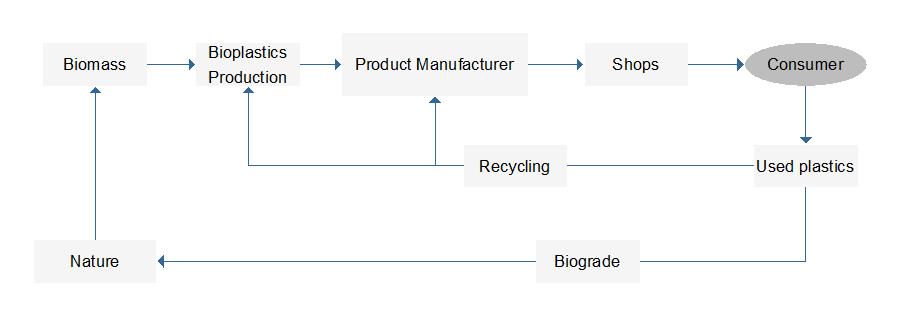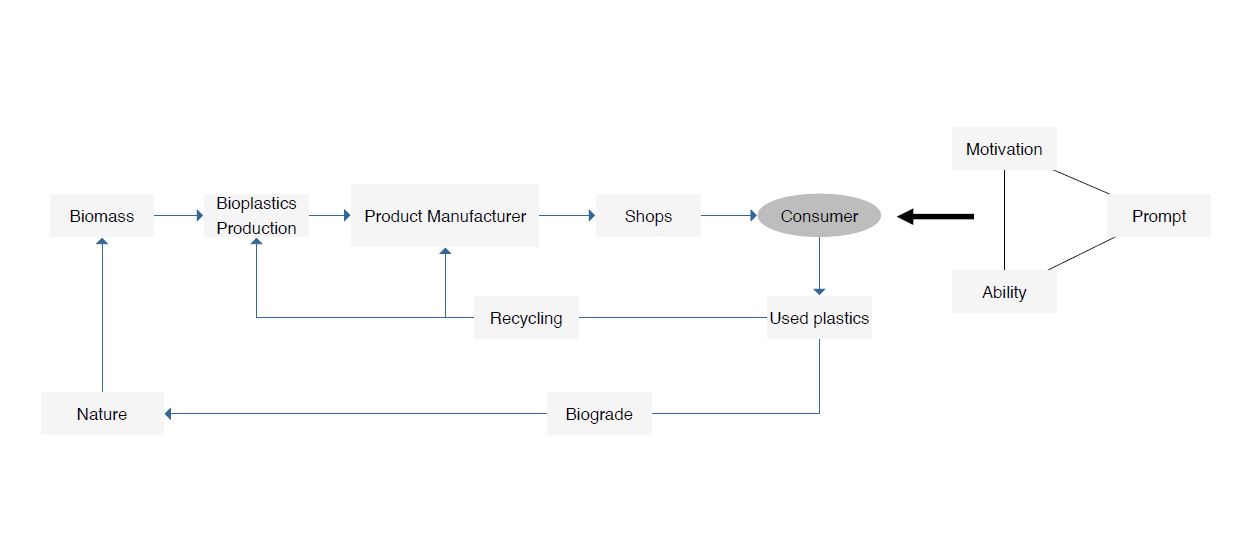
Dr. NNC Pushpamali, Professor Brett Martin, Dr. Anthony Halog, 7 June, 2021
Currently, the Queensland Biofutures 10-year Roadmap and Action Plan from Advance Queensland aims to support economic growth by creating new industries that can generate knowledge-based job opportunities. Biofutures, an industrial biotechnology and bioproducts sector focusing on manufacturing products from ecological organic and/or waste materials, instead of fossil fuels, is one of the options that may support future economic development, create new investment, and increase employability in regional Queensland. It is predicted that this industry could create a Gross State Product of $1.8 billion and 6,640 jobs in Queensland by 2035.
What are bioplastics?
In the biofutures industry, sustainable feedstock or waste is converted into a variety of bioproducts: biochemicals, biofuel, and bioplastics. Plastics such as bottles, bags, and food packaging, are used daily by consumers, but have a severe negative impact on the environment throughout their life cycle due to pollution and the depletion of non-renewable resources. Compared to such petroleum-based plastics, bioplastics are a valid alternative for durable products, packaging, electronic items, and medical uses. Bioplastics made from renewable resources are mostly biodegradable and biocompatible, thus sustainable, and healthier to the environment.
Currently, the bioplastics market only accounts for 1% of total global plastic production but the market is expanding with an annual market growth of 30%. Among the challenges for successful biofutures, supply chain related issues are significant. As shown in the diagram below, bioplastics made from biomass flow to the consumer through different plastic-based product manufacturers via shopping centres and retail stores. When considering the bioplastics supply chain, the consumer as the end user has an important role to play in increasing bioplastics consumption.

Changing customer behaviour and demand for bioplastics
Changing customer behaviour for green and bio-products is essential to enhance sustainability (Soyer & Dittrich, 2020 (2020)). It is a timely requirement to identify what motivates consumers to choose bioplastics and expand this industry while securing non-renewable resources and reducing the environmental damage of petro-based plastics. One approach is the Fogg Behaviour Model which shows that a target behaviour can occur when there is sufficient motivation, ability, and a necessary behaviour prompt. A valid discussion can be developed to persuade the Queensland residents to opt for bioplastics by integrating the Fogg Behaviour Model to the bioplastics supply chain, as shown below.

Alternatively we can look at work in marketing on how to encourage sustainable behaviour by consumers. For example, recent research shows there are five factors - social influence, shaping good habits, leveraging the domino effect, talking to the heart and brain of the consumers, and favouring experiences over ownership- that can be considered to motivate consumers to engage in sustainable behaviour (White, Hardisty, & Habib, 2019). Accordingly, the use of bioplastics can be set as a social norm and a good habit among consumers. The consumers can be encouraged to use bioplastics by making them aware of their positive contribution to the environmental through conserving natural resources. Simultaneously, it is also essential to emphasise that even a good habit such as buying bioplastics must be done wisely, because over-consumption could be a burden on the environment.
Crucial factors influencing consumers such as time, interest level, product price and availability may affect consumer purchasing. In terms of the current market, key challenges that Queensland bioindustries face in terms of finances, access to resources, and supply chain coordination may ultimately limit the local market availability of the bio based plastics products, impacting the consumers purchasing ability. For example, biomass sources such as sugarcane and corn must be promptly available for effective bioplastics productions. Further, consumers are ready to pay an extra 5% of the conventional product price for the sustainable products, however, if the extra price exceeds 5%, the consumer becomes hesitant to go for sustainable products (Goldsberry (2020)).
According to the model, a prompt that triggers the behaviour is required to action a consumer’s motivation and ability. A prompt can be anything that triggers a sustainable behaviour such as green quality cues (e.g. certifications or badges) or social proof (e.g. testimonials or feedback). The government may generate prompts with policy formation. Prompts are important as they remind people of the behaviour that is expected from them. Prompts, that are important in reminding people of their expected behaviour, can be embodied into the social norms. Also, availability and accessibility of clear and detailed information is crucial in making environmentally friendly buying decisions. This information may comprise the details of bioplastic products, environmental benefits of their usage, and the consumers’ role in accelerating sustainability practices.
In short, the interests and needs of consumers need to be considered when government plans Advance Queensland in relation to biofutures. One approach to understanding consumers and bioproducts is the Fogg Behaviour Model which suggests that consumer motivation, ability to understand the message promoting bioplastics, and prompts for them to take action are available for consumers to make sustainable purchasing decisions. Thus, this consumer behaviour, ultimately, will also support to achieve the UN Sustainable Development Goal 12: Ensure sustainable consumption and production patterns.


